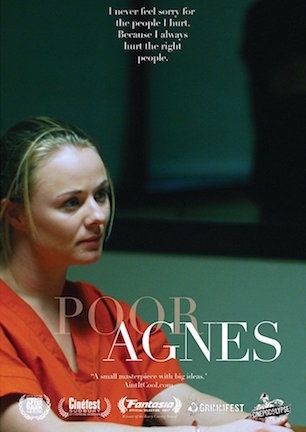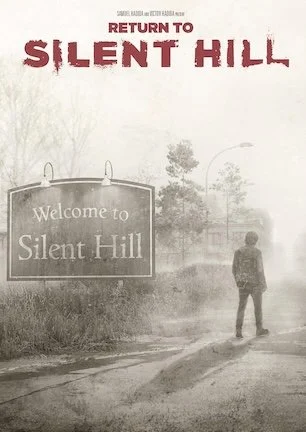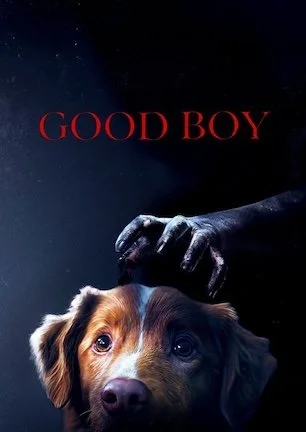Studio: Other Animal
Director: Navin Ramaswaran
Writer: J. Gordon Ross
Producer: Anna Jane Edmonds, Ryan Keller
Stars: Lora Burke, Robert Notman, Will Conlon
Review Score:
Summary:
An unlikely relationship develops between a serial killer and an investigator on the brink of uncovering her murderous history.
Review:
“Men murder whores. Women murder their babies. What does that make me?” muses the titular serial killer at the start of “Poor Agnes.” Agnes’ atypical deviant DNA prevents her from fitting inside boxes typically applied to those in her trade. She’s an attractive young woman driven not by the immediate satisfaction of ending a life or warped internal voices demanding commission of evil deeds. Agnes is cold, collected, calculating. Twisted perspectives push her to destroy men’s minds, asserting dominion over other humans as part of a self-serving power play.
While researching the cold case disappearance of Agnes’ long-ago boyfriend, private investigator Mike falls under her sway only to become Agnes’ next captive. What follows next is a torturous breaking of willpower as Mike becomes Reek to Agnes’ Ramsay Bolton. With his identity reconstructed, Mike turns into a reprogrammed slave, even subservient lover, as his relationship with Agnes evolves in increasingly complicated ways.
When Agnes recruits another component for her ongoing game, the dynamic with Mike changes further still. Mike’s fight for freedom unfolds into a war to retain some sense of self against overwhelming influence to fulfill his function for Agnes. Unfortunately, Mike might be too far down her dark path to avoid becoming the unwitting apprentice Agnes has groomed him to be.
Because of its grounded reality approach to presenting a murderer’s private personality as it exists outside of tabloid headlines, it can be tempting to rebrand this compact drama/thriller as “Agnes: Portrait of a Serial Killer” for “it’s like” simplicity. However, that invokes an inaccurate impression.
Director Navin Ramaswaran’s indie interplay doesn’t dwell on macabre murderousness to the gritty degree that John McNaughton’s “Henry: Portrait of a Serial Killer” does. Nor does “Poor Agnes” depict disturbing abuse as a psychological horror show in the same detailed manner that “The Poughkeepsie Tapes” (review here) peeks behind the cellar door for a frightening look at a sadistic sociopath breaking a victim into passivity.
Uncomfortable sights are included, but used sparingly. “Poor Agnes” instead emphasizes the mindsets motivating its master-submissive relationship, as opposed to sensationalistic shocks or skin-crawling tension of that type.
In this regard, “Poor Agnes” is a true “character study.” Too often that term is misapplied to signal an exploratory acting workshop masquerading as a patient arthouse piece. Here, “Poor Agnes” genuinely crafts intriguing people and then develops them through actions and dialogue, legitimately putting them under an intensive microscope to dissect who they are and why.
Agnes presents herself as the Sun Tzu of serial killing, dispensing philosophy while dispatching victims and tormenting captives, occasionally addressing the camera directly in braggadocios “House of Cards” style. Although these Frank Underwood moments break immersion, they are few and far between. Agnes’ narrative ponderings otherwise land more often than not because Agnes, via writer J. Gordon Ross, actually has something to say about her life, someone else’s death, and the link between the two.
“Poor Agnes” doesn’t become pompously or preposterously overwritten for inflated cinematicism. Actors don’t overplay their roles into rote stereotypes either. A mostly measured performance from Lora Burke flirts with sorority girl smugness, yet keeps Agnes effusing destructive confidence that showcases her smartness, seductiveness, and underlying sinister nature.
Robert Notman, who is one blonde surfer wig away from perfecting the best Ryan Hansen cosplay of all time, is a touch too young to make for a believable private investigator. However, he does make for a believably brainwashed yin to Agnes’ controlling yang. Ramaswaran centers the two actors in a middle ground where they resist temptations to step hard on landmines of caricature behavior, keeping both personas accessible to the audience no matter what they are engaged in. “Poor Agnes” works because of what Burke and Notman bring to the material through the control exercised over their characters.
95 minutes usually isn’t long, but “Poor Agnes” feels its length because it is so intimately confined primarily to two people. Quietly contemplative doesn’t make the most enticing tone for a thriller, yet it is precisely the style “Poor Agnes” asks for.
Due to this, a teeter-totter of interest/disinterest changes position depending on where the movie may be in its hill and valley momentum. Anyone expecting more horror or action than melodrama and introspection is likely to fall off in short order. Those who connect to Agnes and Mike on the other hand, may find themselves gripped by the Spartan study of the odd bond between them.
Review Score: 60






While the 110-minute runtime could use a trim to maintain more energy, “Redux Redux” is an easy recommend for anyone who enjoys low-key sci-fi.